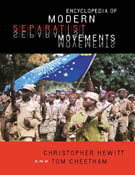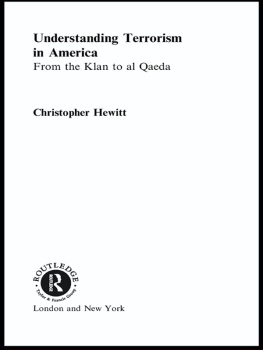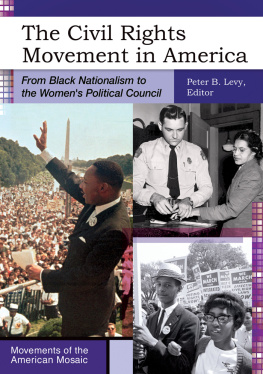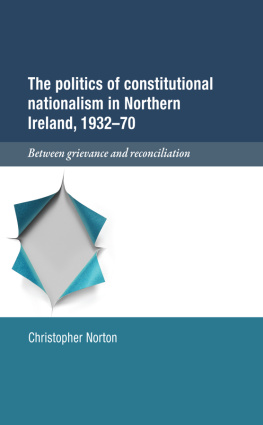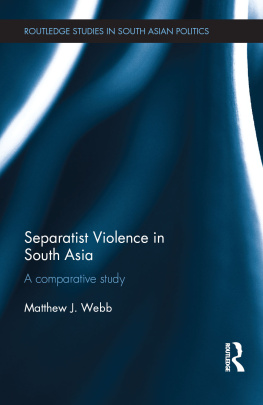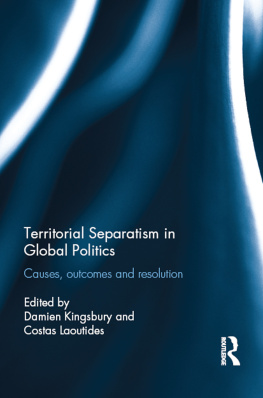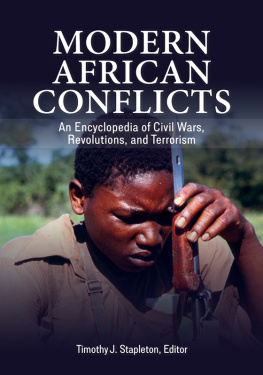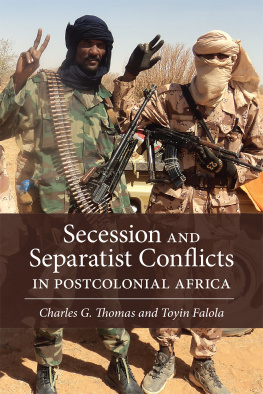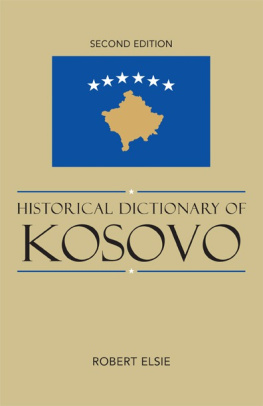central government was further weakened by the London Conference of 1961, at which, as a result of Jamaican pressure, federal powers of taxation were restricted.
After the London Conference, Jamaican Premier Michael Manley announced that a referendum would be held to approve Jamaicas continued membership. His Peoples National Party supported federation while the opposition Jamaica Labour Party argued that federation would be more costly than independence. With only 60 percent of the electorate voting, 55 percent were against remaining in the federation. Although some hoped that a smaller federation led by Trinidad could be established, Dr. Eric Williams, the leader of Trinidad, took the position that the secession of Jamaica meant the abandonment of the whole scheme. As he put it, One from ten leaves none.
Several factors contributed to the breakup of the federation. The weak federal structure reflected the diversity of interests and cultures among the different islands. One West Indian politician described it as the most improbable historical venture that one can imagine. The islands were widely separated, Jamaica and Trinidad being 1,250 miles apart, and communications among them were poor. Most West Indians had never visited any of the other islands, and even their leaders had little contact with one another. The disparities in population and living standards were substantial.
Jamaica had over half the total population; Montserrat had only 0.5 percent. To prevent domination by Jamaica and Trinidad, the two islands were given considerably fewer seats in the legislature than they were entitled to on the basis of their populations. Jamaica wanted a loose confederation while Trinidad advocated a strong central government. Trinidad, the most prosperous of the territories, was worried that freedom of movement would result in large-scale immigration from the poorer islands. Jamaica was afraid that its industrial sector would suffer competition from low-cost producers on other islands and was reluctant to accept free trade within the federation. The constitutional provision that prevented members of local legisla
tures from being elected to the federations parliament made many politicians reluctant to seek federal office.
References
Franck, Thomas M. Why Federations Fail (1968);
Wallace, Elizabeth M. The British Caribbean: From the Decline of Colonialism to the End of Federation (1977).
Fernando Po
The island of Fernando Po (now Bioko) is situated in the Gulf of Guinea a hundred miles from the African mainland. Until 1968, Fernando Po and Ro Muni (now Mbini) formed the Spanish colony of Equatorial Guinea. Most of the islands population consisted of Nigerian contract laborers and their descendants. In 1960, out of a population of about 64,000, 40,000 were Nigerian while the indigenous Bubi numbered only 12,000. As a result of the bad treatment of the Nigerian workers, there was considerable pressure on the newly independent government of Nigeria to annex the island. Nigerian newspapers and politicians called on Spain to hand over the island because of its geographical proximity and the fact that ethnic Nigerians formed a majority. However, fearing that a military takeover would encourage territorial claims against Nigeria, the government resisted the pressure.
When the Spanish colony became independent, both parties on the island were against union with the mainland territory of Ro Muni, and in a 1968 UN referendum, the islanders voted 7,150 to 5,340 for an independent Fernando Po. However, their wishes were ignored, and the island remains united with the mainland.
Reference
Akinyemi, Bolaji. Nigeria and Fernando Poo: The Politics of Irridentism (1970).
France
The French Revolution of 1789 abolished the ancient provinces and replaced them with departments, and a constant theme of French politics since that date has been the conflict between Jacobin centralism and the conservative provinces. One aspect of this struggle was the attempt by the central government to stamp out the use of local languages in the educational system and elsewhere. One French revolutionary called for a sacred competition to banish from all parts of France those jargons which are the remains of feudalism and the monuments of slavery. The rationale for this policy was that regional languages and cultures represented a danger to the survival and integrity of the French state.
Indeed, almost half of the territory of France consists of regions with linguistic minorities, which share in varying degrees a sense of cultural uniqueness. These include Alsace-Lorraine, Brittany, Corsica, the French Basque country, French Catalonia, Occitania, and Westhoek-Flanders. There was a dramatic increase in ethnic activism in the late 1960s, especially after 1968, with about two-thirds of the ethnic organizations being founded after that date. The increase is probably attributable to the effects of the French withdrawal from Algeria in 1962, which demonstrated that France was not really one and indivisible and raised questions about the basis of French identity. The near-revolution of May 1968 not only revealed the vulnerability of the French state but also encouraged a rejection of the inhumane and technocratic centralism of French society.
In 1969, President Charles de Gaulle proposed a number of constitutional changes that would have resulted in considerably more power being exercised at the regional level. The twenty-one existing economic regions would be raised to the status of territorial collectivities of the republic with the task of contributing to the economic, social, and cultural development of the national territory. A regional council would be set up in each region comprising (a) all the National Assembly deputies representing constituencies within the region, (b) territorial councillors elected by the departmental and municipal councils of the region, and (c) councillors representing the economic, social, and cultural spheres to be chosen by trade unions, employers associations,
organizations representing family interests, and so on. The regions would have limited powers of taxation transferred to them, the right to be consulted on regional aspects of the national economic plan, and responsibility for debating and approving the regional budget.
A national referendum on the reform proposals was narrowly defeated, and de Gaulle resigned. In 1974, regional councils with very limited powers and functions were set up. However, the dissolution of four autonomist movements in the same year was widely interpreted as a sign that the French government intended to discourage any trend toward meaningful regional autonomy. After a Socialist government took office in 1997, a more tolerant policy allowed the teaching of Alsatian, Basque, Breton, and other regional languages in the nations schools.
See also
.
Reference
William R. Beer. The Social Class of Ethnic Activists in Contemporary France (1977).
French Guiana
French Guiana, located on the northern coast of South America, became an overseas department of France in 1946. Its inhabitants are French citizens, and they have a legal status identical to that of citizens in France. The population was officially estimated to be 97,300 in 1990, but it may be much higher because of the large number of illegal immigrants from neighboring Brazil and Surinam. The largest group is made up of the black and mixed-race creoles (72 percent), and there are small minorities of Amerindians, whites, and Asians. The countrys economy is heavily dependent on France, with almost two-thirds of the employed population working as civil servants or at the missile-launching site at Kourou. Consequently, support for independence is low, with the Guyanese Movement for Decolonization receiving less than 3.5 percent of the vote in the 1973 election. The Guianese Socialist Party, which advocates autonomy, won a majority of seats in the Regional Council elections of 1994.
Next page
